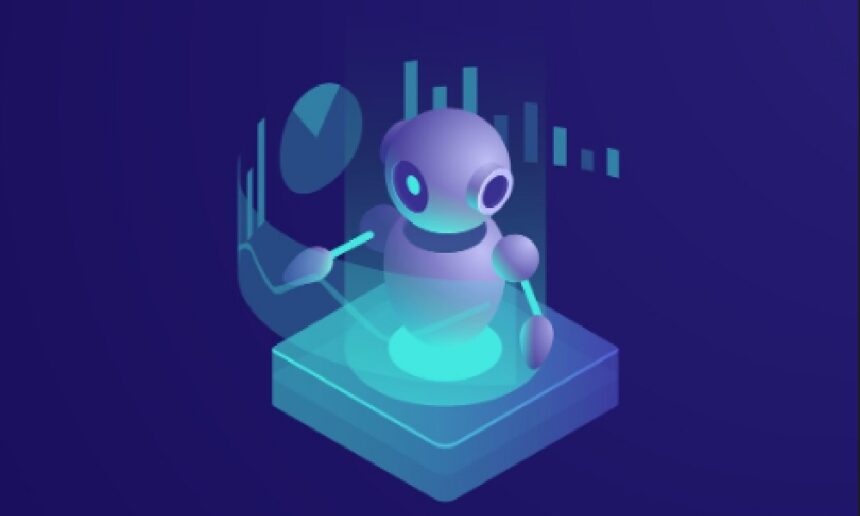There have been plenty of seismic shifts in technology over time. From the manufacturing advances of the Industrial Revolution to the creation of the internet, it’s nothing new. But still, those advancements took time to develop into their final forms.
That, however, isn’t the case with artificial intelligence (AI). It has woven its way into the fabric of society within a few years and shows no signs of slowing down. While some industries like tech have naturally been impacted, others prove more shocking. Here are a few where AI has unexpectedly found its place.
1. Transportation
Planes, trains, and automobiles have historically all been operated by humans. The pilot, conductor, or driver controls the speed and direction of the machine. So, it’s only natural to think that AI and transportation would likely remain separate. Think again.
Take AI in automotive, for example. It’s being used in nearly every step of the transportation process. When designing and manufacturing a vehicle, AI can assist with aerodynamics and structural integrity. Once built and ready for purchase, AI helps the customer experience process and streamlines car buying. Hitting the road has AI all over it, too, with autonomous vehicles driving cars instead of people.
As you can imagine, the possibilities are almost limitless. With AI enhancing transportation practices that have been in place for decades or longer, it’s no telling where it will go. You’ll just have to buckle in and be along for the ride.
2. Beauty
The beauty industry is another space that is naturally reliant on humans. Applying skin care and finding shade matches requires a hands-on approach and visual checks to ensure everything looks right. Surprisingly, AI has become a staple in the beauty and personal care industry, too.
Gone are the days when you have to go to a physical store to test out the latest foundation or concealer. Instead, AI is upping the game of virtual beauty trials. Customers can now shade-match and compare and contrast options they’re considering with confidence through AI-assisted shopping.
It doesn’t stop there. AI is in the early stages of getting more involved in the beauty industry, too. Robot-powered manicure machines and other beauty treatments are already underway. While still in the infancy stage, these innovative applications of AI could shake up the beauty industry as we know it.
3. Healthcare
Technology hasn’t left healthcare behind. Of course, nurses, doctors, and other medical professionals are still needed for critical decision-making and patient care. However, that doesn’t mean there isn’t room for AI.
Medical research is a time-consuming but necessary element of growth and learning in healthcare. Referencing past cases and outcomes informs the decisions medical professionals make for their patients in similar situations. With AI’s extensive search capabilities, this process is simplified.
Rest assured that AI in healthcare isn’t replacing the human element of treatment. Its goal, like in other industries, is to enhance and optimize the work people do. Coupled with the extensive knowledge and expertise of healthcare professionals, AI is bringing medicine to new heights. And that is a benefit everyone can be happy about.
4. Agriculture
One of the more surprising industries on this list is agriculture. You’d think that planting, growing, and harvesting crops would be immune to such technological advances as AI. But the extensive capabilities of AI have even found a home in agriculture.
Take crop farming, for example. Farmers strategically plant thousands of seeds in carefully curated, nutrient-dense fields to yield the greatest output. They’re watching the weather, optimizing the soil, and fending off pests to protect their crops. With AI, this process is even more efficient, producing more.
That’s because AI uses its data to enhance every step of the process. Soil analysis, fertilization schedules, and weather patterns and their impacts are all factored in. There’s less guessing on timing at each step, leading to an increase in crop production. While AI isn’t in the fields, it’s a resource that’s improving farming nonetheless. That’s something even old-school farmers can get behind.
5. Tourism
The tourism industry is one fraught with decisions. Where should you stay? What activities should you book? How long should you be gone? The answers will vary depending on factors like your budget and travel preferences.
But now, AI makes deciding where to go and what to do on your next decision easy. People are planning trips using AI to create itineraries instead of mulling over a shared spreadsheet. Tourists are scoping out the coolest local spots in a matter of seconds with AI-powered searches.
The result? Vacations are planned with ease, taking out decision fatigue altogether. Travelers are finding better options that fit their idea of a dream vacation. Businesses that use AI-optimized content are thriving. And the tourism industry as a whole is reaping the benefits of a new level of information access.
AI is Here to Stay
Love it or hate it, AI isn’t going anywhere. It’s embedded into society, finding spots big and small to adapt to. Of course, that doesn’t make people immune to the unknowns that come along with it. Unlike the technological transformations of the past, AI is moving faster and learning more every day. With that kind of momentum, all industries must find a way to keep up.

